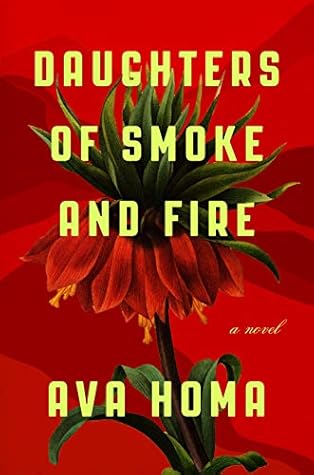More on this book
Community
Kindle Notes & Highlights
And yet resisting and losing is better than dying silently, no?”
When the Western Allies had drawn the map of the Middle East, they had cut Kurdistan into four pieces, dividing it among Iran, Iraq, Turkey, and Syria.
Some of the customers would ask me, “Why are Kurds so hated in Turkey and Iraq?” As if I were responsible for dissecting idiocy and ignorance, as if cruelty and racism had a philosophical theory I was supposed to recite because I belonged to its victimized group. No one ever asked, “How does it feel to be a Kurd in a hateful world?”
How easy it was to lose sanity, I thought, when you were exposed to such madness, so frequently.
I ask again, why fire? I could answer that question. Women who lost all reason to live wanted their internalized burning rage to manifest on the outside too. A dramatic death testified to an agonizing life.
Yet to witness the boot print of brutality on your loved one’s face and body and not be allowed to care for them, nurse their wounds, even hug them, was the family’s share of the torture.
Until coming face-to-face with death, I had taken cruelty personally, overlooking how that kind of ruthlessness had roots deep in the history of humankind. It didn’t matter if my name was Leila or Njorge, if I spoke Hebrew or Navajo—it was most certainly not about me.
How else are they going to get people to vote for them if there isn’t some ‘enemy’ out there? I see it so clearly now. The end of racism and other fears will be the end of dictators. Our weapons may look like toys before their artillery, but what we stand for scares the hell out of them. So they’re more focused on distorting our image than actually killing us, and they can do that. They control the masses through media.”
Rich inner life. One’s only reliable investment and the most loyal companion.
Mama was thankful to her God for making her feel special again and providing her with all the attention she craved but didn’t know how to handle.
Dictators are nourished by fear, hostility among the citizenry, and above all, apathy.”
I knew what to do to overcome prejudice: invoke sympathy.
“Nefrat parakani nakon. Stop spreading hatred. In this country everyone suffers equally.” The phony platinum-blonde was not to be placated with reason. “No. People do not suffer equally in this or any country. Talking about our reality is not spreading hate. It’s inviting understanding.” I shook my head in despair.
How naïve of me to risk my life to speak to people who valued acres above humans. “Can’t you hear how similar you sound to the government you oppose?”
Flags! How I hated them, glorified symbols of division and bloodshed.
Assassinations don’t help dictators because . . . because the pain that is aroused in the victims’ society can become a strong source of artistic creation or activism, resistance in so many different shapes.”
What are you and I to do when we can neither bear to face the atrocities, nor overlook them?
I believe that when humanity grows truly sick of inequality, we will push toward forming a global community, above narrow identities, and build a fierce and intensifying coalition that values all lives indiscriminately. What can get us there?
Literature cultivates our senses by humanizing the unpeople—the “ungrievable lives” in Judith Butler’s words—by encouraging us to recognize our (un)conscious human/less human binaries. Literature fuels us to bring awareness to and change our conditioning formed over thousands of years, according to which a person who looked different was equated with danger.


